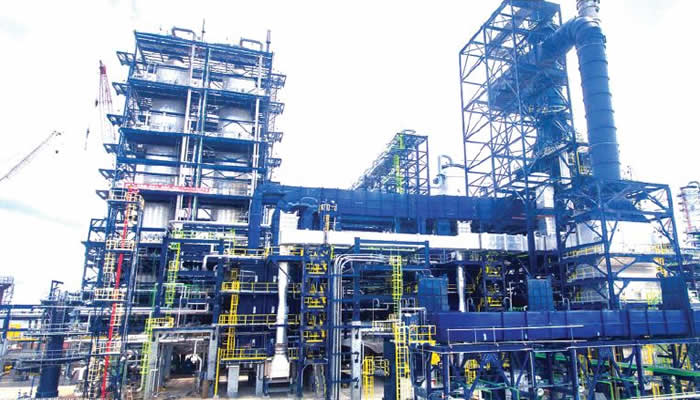The Dangote Petroleum Refinery has resumed the sale of Premium Motor Spirit, popularly known as petrol, after a one-week suspension, with a revised ex-depot price of N850 per litre, up from the previous rate of N820.

This represents a 3.66 per cent or N30 increase in the ex-depot price, raising fresh concerns about potential hikes in pump prices across the country. The updated price, tracked via industry platform petroleumprice.ng, became effective Thursday as loading activities resumed at the 650,000-barrels-per-day facility located in the Lekki Free Trade Zone, Lagos.
It was earlier reported that a sudden halt in petrol sales at the multi-billion-dollar facility, a move that created uncertainty across the downstream market and triggered price volatility nationwide.
In a notice titled “Important Update on DPRP Collection Account for PMS”, Dangote refinery instructed marketers to halt all payments for PMS loading at its gantry, effectively freezing further allocations. “Please be advised that, effective immediately, all payments to the DPRP collection account for PMS gantry should be placed on hold,” the internal memo read. “Further updates will be communicated shortly.”
But resuming sales after a week-long pause, the refinery has increased its loading cost to N850, indicating a possible increase in pump price next week nationwide.
Although the refinery has not issued a public statement on the price increase, industry insiders attribute the move to fluctuations in global crude oil prices. Dangote Refinery reportedly imports around 50 per cent of its crude feedstock from the United States, leaving it vulnerable to international market dynamics.
Despite the hike in petrol price, the refinery has maintained its competitive edge in diesel sales, offering Automotive Gas Oil at N990 per litre to bulk buyers. This figure remains significantly lower than the N1,030 average seen across private depots in Lagos and other regions.
Checks on Thursday confirmed that diesel continues to retail between N1,010 and N1,050 per litre at other private terminals, reinforcing Dangote’s pricing advantage in the diesel segment.
The refinery’s decision to resume loading operations has brought temporary relief to marketers, many of whom had feared a prolonged disruption. However, some operators remain on edge, citing the unpredictability of crude pricing and a lack of transparency around the refinery’s supply protocols.
The Dangote refinery, commissioned in 2023 and currently expanding from 650,000 barrels per day to 700,000 bpd, was expected to stabilise the Nigerian downstream sector and reduce import dependence. However, recent developments suggest that the road to full operational consistency may still lie ahead.
Fresh data from the downstream regulator of the oil sector revealed that marketers have resumed large-scale importation of refined petroleum products, choosing not to patronise local refineries.







